JNC ε-Poly-L-Lysine (Polylysine)
ε-Poly-L-Lysine(Polylysine) is a natural-based material manufactured by JNC CORPORATION with its own bio-technology. Polylysine is a straight chain polymer of Lysine, which is one of the essential amino acids. Polylysine is a polycation, therefore it has an excellent bacteriostatic effect and its safety has been ensured by various toxicity tests such as chronic toxicity tests, and so this compound can be used as a food additives. Furthermore, it is expected to be applied to bioplastics. JNC Polylysine 25g (reagent size) is now available from FUJIFILM Wako. This is in response to customer requests.
Features
-
- High water solubility
- Growth inhibitory effect
against various microorganisms - Extremely stable against heat.
- Wide range pH stability

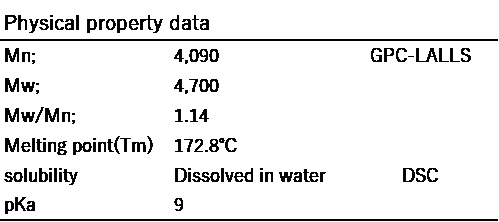
-
Microbial growth inhibitory effect
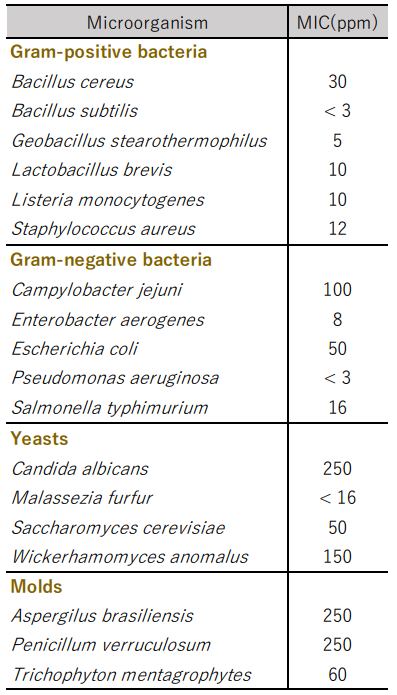
-
Growth inhibitory effect at each pH range
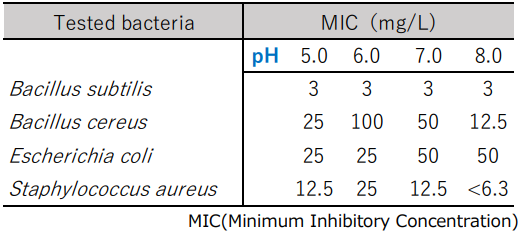
-
Heat stability test
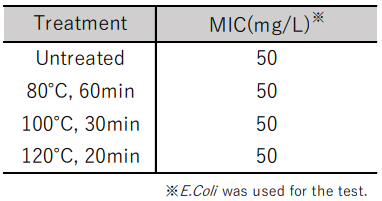
Application Examples
Effect of Aggregation
As a cationic polymer, it can reacts with anionic polymers such as proteins, nucleic acids or polysaccharides, and precipitate as ion-complex.

1) Kazunori U, Yoshimitsu H, Tomotake M, and Tokuma F.: ACS OMEGA, 4, 9756(2019)
Effect of Adsorption
Adosorption of ε-polylysine on the surface of hair, skin, plastic, metal or else can be used to modify chemical propaties.
Adsorption of polylysine to human hair (visualized by using fluorolabeled technique)

Observation of HeLa D98 cell culture in 24-well plates coated with α- or ε-polylysine
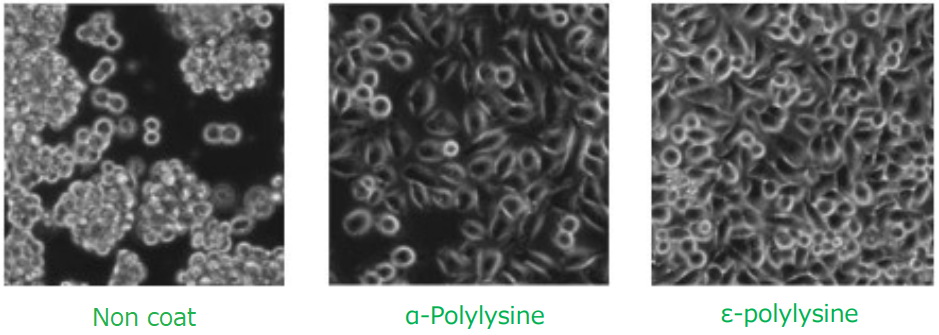
ε-Polylysine contributes to better cell adhesion effect than α-Polylysine.
Effect of Deodrant
ε-Polylysine is confirmed to have an ability of deodorant especially against lower fatty acids.

- Add malodorous substances (n-butyric acid or iso-valeric acid) and polylysine or pure water (BLANK) in the F2s sampling bags.
- After filling with air, seal and letting them stan on the hot bath.
- After letting them cooldown, the concentration of each malodorous substances was measured.
Product List
- Open All
- Close All
For research use or further manufacturing use only. Not for use in diagnostic procedures.
Product content may differ from the actual image due to minor specification changes etc.
If the revision of product standards and packaging standards has been made, there is a case where the actual product specifications and images are different.



